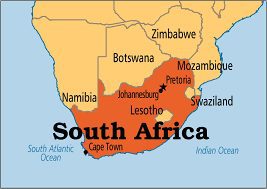South African President Cyril Ramaphosa on Wednesday launched what he called the National Pathway Management Network designed to assist millions of the country’s unemployed youth to find their way into the economy.
Ramaphosa made the virtual announcement as part of the country’s commemoration of Youth Day, an occasion that recalls the bloody protests that Soweto students staged against the use of Afrikaans as a medium of instruction in their schools nationwide.
He added that the initiative would bring together eight government ministries to support the youth in finding their way into the economy by reducing the current high youth unemployment rate.
The network will complement government’s efforts to create spaces where young people could access information, opportunities and support, he said.
“I want to make a call to young South Africans to register on SA YOUTH MOBI. You can create a profile of yourself, view opportunities for learning and earning and receive support through multiple channels,” Ramaphosa said.
He added: “SA YOUTH MOBI has been zero-rated by all mobile networks so that it can be accessed by young people across the country at no cost. All you need is a mobile phone or a computer to access it.”
Youth Day recalls the occasion thousands of students in the morning of 16 June 1976, instead of going to classes, took to the dusty, unpaved streets of Soweto carrying placards to show their displeasure with the increasingly harsh white minority government which had decreed to impose Afrikaans as a medium of instruction in African schools.
Afrikaans, the language spoken by the white oppressors, was the last thing the country’s majority black schools expected to be used in their classrooms.
The move sparked the Soweto Uprising of 1976 as the students took to the streets to protest against the decision imposed on what was then known as Bantu Education – education for only Africans.
The unarmed students, unfortunately, were met with heavily armed policemen who mercilessly fired live bullets at them after they refused to end the march, killing dozens.
Youth Day, therefore, symbolically recognises the sacrifices the youth made on that occasion to liberate the nation from harsh white minority rule, the president said.
The annual Youth Day is also celebrated elsewhere in the world as International Youth Day in honour of the youths who lost their lives in efforts to free South Africa from colonialism and harsh white minority rule under apartheid which ended in 1994 after four centuries of oppression.
NM/jn/APA


